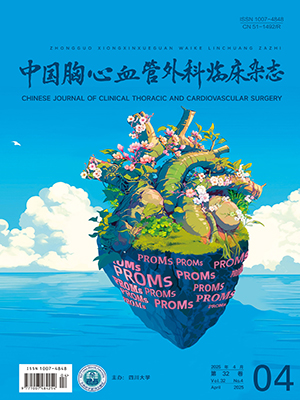| 1. |
郑荣寿, 孙可欣, 张思维, 等. 2015 年中国恶性肿瘤流行情况分析. 中华肿瘤杂志, 2019, 41(1): 19-28.
|
| 2. |
Testa U, Castelli G, Pelosi E. Lung cancers: Molecular characterization, clonal heterogeneity and evolution, and cancer stem cells. Cancers (Basel), 2018, 10(8): 248.
|
| 3. |
Byers LA, Rudin CM. Small cell lung cancer: Where do we go from here? Cancer, 2015, 121(5): 664-672.
|
| 4. |
Sabari JK, Lok BH, Laird JH, et al. Unravelling the biology of SCLC: Implications for therapy. Nat Rev Clin Oncol, 2017, 14(9): 549-561.
|
| 5. |
Yang S, Zhang Z, Wang Q. Emerging therapies for small cell lung cancer. J Hematol Oncol, 2019, 12(1): 47.
|
| 6. |
Shi L, Zhou Q, Wu J, et al. Efficacy of adjuvant immunotherapy with cytokine-induced killer cells in patients with locally advanced gastric cancer. Cancer Immunol Immunother, 2012, 61(12): 2251-2259.
|
| 7. |
Yu X, Zhao H, Liu L, et al. A randomized phaseⅡstudy of autologous cytokine-induced killer cells in treatment of hepatocellular carcinoma. J Clin Immunol, 2014, 34(2): 194-203.
|
| 8. |
Brand JM, Meller B, Von Hof K, et al. Kinetics and organ distribution of allogeneic natural killer lymphocytes transfused into patients suffering from renal cell carcinoma. Stem Cells Dev, 2004, 13(3): 307-314.
|
| 9. |
Dai C, Lin F, Geng R, et al. Implication of combined PD-L1/PD-1 blockade with cytokine-induced killer cells as a synergistic immunotherapy for gastrointestinal cancer. Oncotarget, 2016, 7(9): 10332-10344.
|
| 10. |
Poh SL, Linn YC. Immune checkpoint inhibitors enhance cytotoxicity of cytokine-induced killer cells against human myeloid leukaemic blasts. Cancer Immunol Immunother, 2016, 65(5): 525-536.
|
| 11. |
Bray F, Jemal A, Grey N, et al. Global cancer transitions according to the Human Development Index (2008-2030): A population-based study. Lancet Oncol, 2012, 13(8): 790-801.
|
| 12. |
Ferlay J, Soerjomataram I, Dikshit R, et al. Cancer incidence and mortality worldwide: Sources, methods and major patterns in GLOBOCAN 2012. Int J Cancer, 2015, 136(5): E359-E386.
|
| 13. |
Yang L, Wang L, Zhang Y. Immunotherapy for lung cancer: Advances and prospects. Am J Clin Exp Immunol, 2016, 5(1): 1-20.
|
| 14. |
Jiang J, Wu C, Lu B. Cytokine-induced killer cells promote antitumor immunity. J Transl Med, 2013, 11(1): 83.
|
| 15. |
Méndez R, Ruiz-Cabello F, Rodríguez T, et al. Identification of different tumor escape mechanisms in several metastases from a melanoma patient undergoing immunotherapy. Cancer Immunol Immunother, 2007, 56(1): 88-94.
|
| 16. |
Wongkajornsilp A, Somchitprasert T, Butraporn R, et al. Human cytokine-induced killer cells specifically infiltrated and retarded the growth of the inoculated human cholangiocarcinoma cells in SCID mice. Cancer Invest, 2009, 27(2): 140-148.
|
| 17. |
Thanendrarajan S, Nowak M, Abken H, et al. Combining cytokine-induced killer cells with vaccination in cancer immunotherapy: More than one plus one? Leuk Res, 2011, 35(9): 1136-1142.
|
| 18. |
Schmidt-Wolf IG, Negrin RS, Kiem HP, et al. Use of a SCID mouse/human lymphoma model to evaluate cytokine-induced killer cells with potent antitumor cell activity. J Exp Med, 1991, 174(1): 139-149.
|
| 19. |
Linn YC, Wang SM, Hui KM. Comparative gene expression profiling of cytokine-induced killer cells in response to acute myloid leukemic and acute lymphoblastic leukemic stimulators using oligonucleotide arrays. Exp Hematol, 2005, 33(6): 671-681.
|
| 20. |
Remark R, Becker C, Gomez JE, et al. The non-small cell lung cancer immune contexture. A major determinant of tumor characteristics and patient outcome. Am J Respir Crit Care Med, 2015, 191(4): 377-390.
|
| 21. |
Boussiotis VA. Molecular and biochemical aspects of the PD-1 checkpoint pathway. N Engl J Med, 2016, 375(18): 1767-1778.
|
| 22. |
Barber DL, Wherry EJ, Masopust D, et al. Restoring function in exhausted CD8 T cells during chronic viral infection J. Nature, 2006, 439(7077): 682-687.
|
| 23. |
Misra P, Singh S. Role of cytokines in combinatorial immunotherapeutics of non‐small cell lung cancer through systems perspective. Cancer Med-US, 2019, 8(5): 1976-1995.
|
| 24. |
Yuan M, Huang LL, Chen JH, et al. The emerging treatment landscape of targeted therapy in non-small-cell lung cancer. Signal Transduct Target Ther, 2019, 4(1): 1-14.
|
| 25. |
Ding X, Cao H, Chen X, et al. Cellular immunotherapy as maintenance therapy prolongs the survival of the patients with small cell lung cancer. J Transl Med, 2015, 13(1): 158.
|
| 26. |
Ma W, Gilligan BM, Yuan J, et al. Current status and perspectives in translational biomarker research for PD-1/PD-L1 immune checkpoint blockade therapy. J Hemato Oncol, 2016, 9(1): 47.
|
| 27. |
Qin A, Coffey DG, Warren EH, et al. Mechanisms of immune evasion and current status of checkpoint inhibitors in non-small cell lung cancer. Cancer Med-US, 2016, 5(9): 2567-2578.
|
| 28. |
Dunn GP, Old LJ, Schreiber RD. The three Es of cancer immunoediting. Annu Rev Immunol, 2004, 22: 329-360.
|
| 29. |
Sui X, Ma J, Han W, et al. The anticancer immune response of anti-PD-1/PD-L1 and the genetic determinants of response to anti-PD-1/PD-L1 antibodies in cancer patients. Oncotarget, 2015, 6(23): 19393-19404.
|
| 30. |
Teng F, Meng X, Kong L, et al. Progress and challenges of predictive biomarkers of anti PD-1/PD-L1 immunotherapy: A systematic review. Cancer Lett, 2018, 414: 166-173.
|




